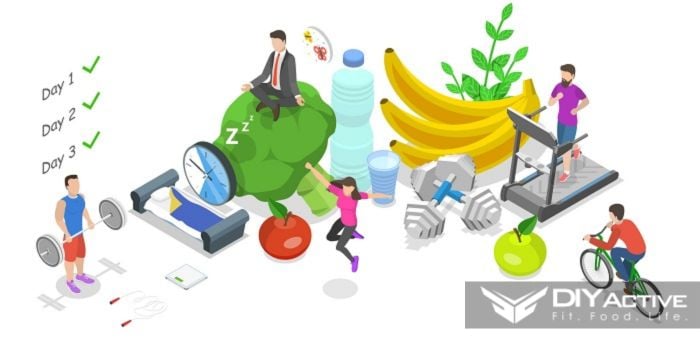Dialysis: Challenges and Coping Strategies
Imagine facing dialysis, a critical treatment needed when kidneys fail. This challenging reality impacts many, cutting across age and lifestyle. Dialysis, although lifesaving, comes with its own set of demanding physical and emotional adjustments.
Empowering Kidney Health: Proactive Steps for Prevention
However, such extremes can often be prevented. Maintaining good kidney health is about more than just avoiding dialysis. It’s about taking smart, proactive steps right now. You have the power to influence your kidney health. Let’s explore effective measures to protect these vital organs, emphasizing early care and prevention.
Understanding Dialysis
Dialysis becomes essential when severe kidney failure occurs, performing the critical function of filtering waste from the blood. It’s most often required due to conditions like diabetes or hypertension that impair kidney function. Although not a cure, dialysis is crucial for maintaining bodily balance and extending life.
Here are the main types of dialysis:
- Hemodialysis: This involves using a machine to clean the blood, usually for about four hours, three times a week.
- Peritoneal Dialysis: This technique uses the abdomen’s lining as a filter and is often performed at home, including during nighttime hours.
Adapting to either form of dialysis, whether hemodialysis or peritoneal dialysis, means adjusting to a regular treatment schedule and dietary changes. It also involves managing side effects like fatigue and muscle cramps. It also demands emotional resilience, often necessitating support from healthcare teams and family.
Recognizing Chronic Kidney Disease
Chronic Kidney Disease (CKD) is a progressive loss of kidney function that often develops unnoticed. Early signs include fatigue, changes in urination, swelling in legs or ankles, persistent itching, and shortness of breath.
Recognizing these symptoms promptly is crucial for early intervention. It’s important to note that CKD is a progressive disease that can lead to end-stage renal disease if not managed properly.
Diagnosis typically involves blood and urine tests to measure kidney function indicators such as creatinine levels and to check for abnormalities like protein or blood in the urine. Key risk factors for this disease include diabetes, high blood pressure, obesity, older age, and a family history of kidney issues.
Regular health check-ups are necessary, especially for individuals with these risk factors. Timely detection and management can significantly slow the disease’s progression, reducing the need for more invasive treatments in the future.
Preventive Measures To Protect Your Kidneys
Your kidneys play a crucial role in your overall health, and taking steps to protect them is important. By adopting specific lifestyle and dietary habits, you can significantly boost kidney function and health.
- Reduce Salt Intake: Lowering sodium in your diet is essential for controlling blood pressure, a key factor in kidney health. Use herbs and spices instead of salt for flavoring. Additionally, be mindful of high-sodium foods like processed meats, canned soups, and fast foods. Reading food labels can help you make lower-sodium choices.
- Choose Healthy Foods: A balanced diet supports kidney health. Include lean proteins such as chicken, fish, and beans. Fruits and vegetables are rich in antioxidants and nutrients, but be cautious with high-potassium foods like bananas and oranges. Whole grains should also be a staple in your diet, providing needed fiber without overloading your kidneys.
- Exercise Regularly: Regular physical activity helps control weight and blood pressure, reducing the risk of kidney damage. This doesn’t necessarily mean intense workouts. Even daily walks, cycling, or yoga can be beneficial. Aim for at least 150 minutes of moderate exercise per week.
- Avoid Harmful Habits: Smoking and excessive alcohol consumption can significantly impair kidney function. Smoking decreases blood flow to the kidneys, impairing their ability to function properly, while excessive drinking can cause changes in these vital organs and increase the risk of kidney disease.
- Use Medications Wisely: Non-steroidal anti-inflammatory drugs (NSAIDs) like ibuprofen can affect kidney health if used regularly. Always consult with your healthcare provider before taking any medication, particularly if you have existing kidney concerns.
- Stay Hydrated: Adequate hydration is vital for kidney function. The amount of water you need can vary based on factors like climate, physical activity, and health conditions. Generally, aiming for light yellow urine is a good indicator of proper hydration.
- Undergo Regular Screenings: Regular health screenings are important, especially for blood pressure and blood sugar levels, as diabetes and hypertension are the leading causes of kidney disease. These checks help in the early detection and management of any kidney-related issues.
By focusing on these areas, you can make a significant impact on the health of your kidneys. Remember, small daily changes can lead to big improvements in your kidney health and overall well-being.
Final Thoughts
In summary, maintaining the health of your kidneys is a crucial aspect of overall well-being. Simple, daily actions and informed decisions play a crucial role in this process. By adopting a lifestyle that supports these essential filtering organs and seeking guidance from healthcare professionals, you not only prevent potential health complications but also boost your quality of life.
Your commitment to caring for your kidneys represents a profound act of self-care. Each positive lifestyle adjustment you make contributes to your long-term health. By consistently focusing on care and maintaining awareness of your overall wellness, you’re establishing a strong foundation for a healthier future.